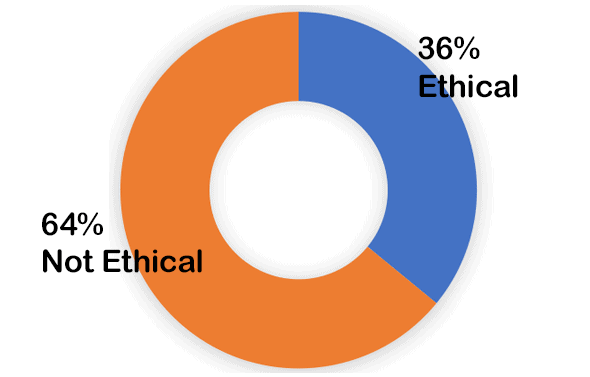This is the August 2020 edition of our monthly series of Ethics case studies titled What Do You Think? This series is comprised of case studies from NSPE archives, involving both real and hypothetical matters submitted by engineers, public officials and members of the public.
Your peers and the NSPE Board of Ethical Review have reviewed the facts of the case as shown below. And, here are the results.
Your opinion has been registered for the August 2020 edition of our monthly series of Ethics case studies titled What Do You Think?
Your vote is recorded as:

Want to know how your peers voted? We’ll send you an email with the poll results on August 25.
Your opinion has been registered for the August 2020 edition of our monthly series of Ethics case studies titled What Do You Think?
Your vote is recorded as:

Want to know how your peers voted? We’ll send you an email with the poll results on August 25.
A Review of the Facts
Engineer Heidi serves as a member of the Board of Trustees of a college in a medium-sized city. The US Department of Housing and Urban Development has awarded the city money, and the city has agreed to use the money to construct a new library at the college. Heidi would like to be considered to provide engineering services on the project.
Is it ethical for Heidi to be considered in providing engineering services on this project?
Here is the result of our survey of your peers:

Applicable NSPE Code References:
Code II.4.d: Engineers in public service as members, advisors, or employees of a governmental or quasi-governmental body or department shall not participate in decisions with respect to services solicited or provided by them or their organizations in private or public engineering practice.
Code II.4.e: Engineers shall not solicit or accept a contract from a governmental body on which a principal or officer of their organization serves as a member.
Code III.1.e: Engineers shall not promote their own interest at the expense of the dignity and integrity of the profession.
Discussion
Similar cases were considered by the BER in 92-5 and 85-2.
Case 92-5 focuses on an engineer who was instrumental on a community service corporation responsible for obtaining money to construct a courthouse and office. The service corporation successfully received federally allocated funds, but it had no influence in determining who would design or build the project. The engineer wanted to be a subconsultant to a larger design firm submitting proposals to the appropriate Federal government agency. The BER opinion found no violation of the ethical code.
In 85-2, an engineer served on a board of directors of a private health care provider that contracted with the county hospital board to operate a health care facility, where some engineering work is needed. The engineer received a contract from the private provider to perform the work, and the decision was made by the private board of which the engineer was a member, meaning that he participated in the decision. The BER concluded that the engineer could not ethically seek the work or participate in the decision of selecting himself.
In the present case, the facts indicate the city will be awarding the library contract using HUD funds. The college trustees and city fathers must have a very close relationship. Although Heidi will not be involved in the decision, she is too close to the city and could influence their decision.
The Ethical Review Board’s Conclusion

It would be unethical for Heidi to be considered in providing engineering services on this project.
BOARD OF ETHICAL REVIEW
William A. Cox, Jr., P.E., James G. Fuller, P.E., Donald L. Hiatte, P.E., Robert L. Nichols, P.E., William E. Norris, P.E., Jimmy H. Smith, Ph.D., P.E., William W. Middleton, P.E., Chairman
Note: The Board of Ethical Review operates on an “ad hoc” educational basis, and does not engage in resolving disputes of fact between parties in actual cases. That function is left to the state society if members are involved in judging whether a member has violated the Code of Ethics. Being solely educational, the function of the Board is to take the submission of “facts” as the basis for analysis and opinion without attempting to obtain rebuttal or comment from other parties. On that basis, the reader of the opinions should always recognize that the Board of Ethical Review is not an adjudicatory body, and unless indicated otherwise, its opinions are not binding upon the National Society of Professional Engineers, any state engineering society or any individual. Instead, the opinions represent the opinions of licensed engineers as to the reasonable standards of practice within the engineering profession. Board of Ethical Review opinions are intended to provide guidance in actual cases only to the extent of the “facts”, stated in the case. Cases may be reproduced for educational purposes as long as the material reproduced provides appropriate attribution to NSPE and the Board of Ethical Review.








I see nothing wrong with trying to provide engineering services. Heidi probably knows best as to what the school needs for this project.
I agree 100% that it is not ethical in this case. Members of Boards of Trustees should keep this in mind when they accept such a position.
Regarding the wisdom, a project owner may become miffed with their design engineer. Heidi’s primary job might be endangered. The owner does need a knowledgeable engineer to serve as the owner’s reviewer and advisor regarding design and construction work. Heidi might serve as the owner’s on-board engineer.